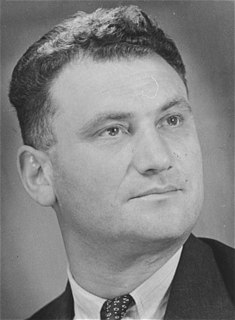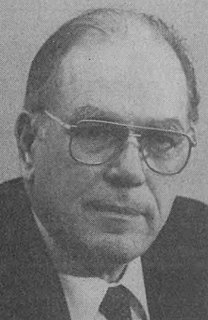A Quote by Swami Vivekananda
Those who die, merely suffering the woes of life like cats and dogs, are they human beings? The worthy are those who, even when agitated by the sharp interaction of pleasure and pain, are discriminating and, knowing them to be of an evanescent nature, become passionately devoted to the Atman. This is all the difference between human beings and animals.
Related Quotes
I no longer become angry. I not only do not say angry words, I do not even think angry thoughts! If someone does an unkind thing to me I feel only compassion instead of resentment. Even upon those who cause suffering I look with deep compassion, knowing the harvest of sorrow that lies in store for them. If there were those who hated me, I would love them in return, knowing that hatred can only be overcome by love, and knowing that there is good in all human beings which can be reached by a loving approach.
The intelligence displayed by many dumb animals approaches so closely to human intelligence that it is a mystery. The animals see and hear and love and fear and suffer. They use their organs far more faithfully than many human beings use theirs. They manifest sympathy and tenderness toward their companions in suffering. Many animals show an affection for those who have charge of them, far superior to the affection shown by some of the human race. They form attachments for man which are not broken without great suffering to them.
All living beings have experience of pleasure and pain, and we are among them. What makes human beings different is that we have a powerful intelligence and a much greater ability to achieve happiness and avoid suffering. Real happiness and friendship come not from money or even knowledge, but from warm-heartednes s. Once we recognize this we will be more inclined to cultivate it.
The ruling British elite are like animals--not only in their morality, but in their outlook on knowledge. They are clever animals, who are masters of the wicked nature of their own species, and recognize ferally the distinctions of the hated human species. Nonetheless, obsessively dedicated to being such animals, they can not [sic] assimilate those qualities unique to true human beings.
There is no limit to suffering human beings have been willing to inflict on others, no matter how innocent, no matter how young, and no matter how old. This fact must lead all reasonable human beings, that is, all human beings who take evidence seriously, to draw only one possible conclusion: Human nature is not basically good.
There is at the moment in the world a battle going on between those who are pursuing materialistic paths-globalizers of economic growth and those hell-bent on this 'big is better' idea-on the one hand, and on the other hand those who are dedicated to spiritual renewal, more small-scale development, more human scale, more sustainability, more crafts and arts. Where human beings are not just sold to companies and money and those kinds of things. Where human beings have a sacred path.
No matter what part of the world we come from, we are all basically the same human beings. We all seek happiness and try to avoid suffering. We have the same basic human needs and concerns. All of us human beings want freedom and the right to determine our own destiny as individuals and as peoples. That is human nature.
It is critical to realize that underlying the extermination of nature is the marginalization of human beings. If we are to save what is wild, what is irreparable and majestic in nature, then we will ironically have to turn to each other and take care of all the human beings here on Earth. There is no boundary that will protect an environment from a suffering humanity.
In the end, people don't view their life as merely the average of all its moments-which, after all, is mostly nothing much plus some sleep. For human beings, life is meaningful because it is a story. A story has a sense of a whole, and its arc is determined by the significant moments, the ones where something happens. Measurements of people's minute-by-minute levels of pleasure and pain miss this fundamental aspect of human existence. A seemingly happy life maybe empty. A seemingly difficult life may be devoted to a great cause. We have purposes larger than ourselves.




































